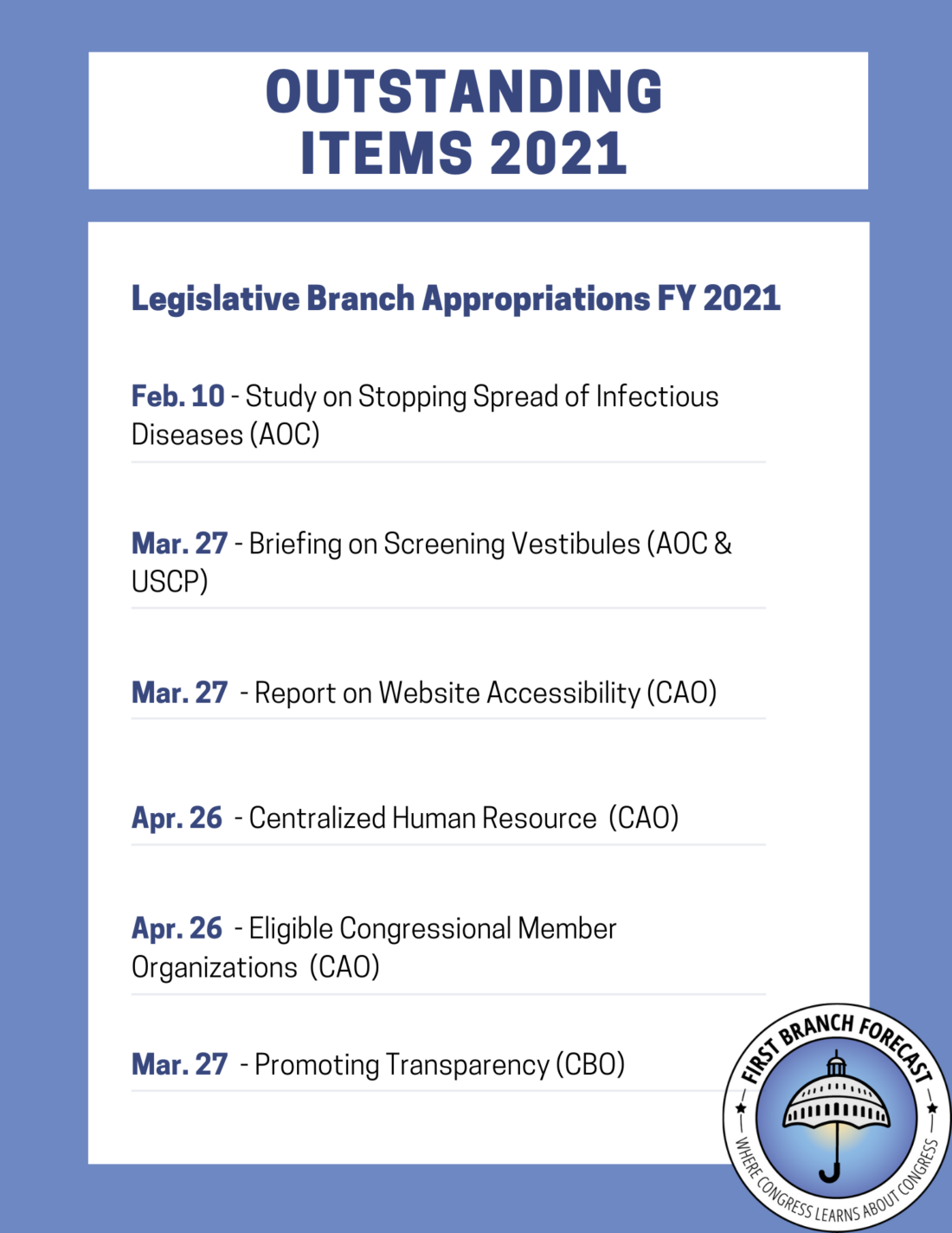Welcome to the First Branch Forecast, your weekly look into the Legislative branch and government transparency. Encourage your colleagues to subscribe here.
TOP LINE
Both chambers are in session this week and getting down to business:
A bill providing for a January 6th Commission likely will be considered in the House this week. The legislation, introduced by House Homeland Security Committee Chair Thompson and Ranking Member Katko, provides for the creation of an independent, bipartisan Commission. (More below).
The Emergency Security Supplemental Appropriations bill is the subject of a House Rules hearing tomorrow and is on the House floor calendar for later this week. It’s not smooth sailing, however: Republican leadership is hesitant and Senate Appropriations Chair Leahy “would be more comfortable pushing through a security supplemental once an independent commission has completed a review,” Jack Fitzpatrick reports. (More below)
The Capitol Police Board will testify at the House Admin hearing on “Reforming The Capitol Police And Improving Accountability For The Capitol Police Board” this Wednesday at 3. The last time the trio (excluding the Police Chief) testified together in the House was in the 1940s.
Capitol safety and the January 6th insurrection were the focus of a House Oversight hearing with the DoD, DOJ, and Metro Police, as well as two House Admin hearings with the USCP IG and the Architect of the Capitol Inspector General. The upshot so far: the people responsible for security don’t regularly update their security protocols and practices, don’t plan together, don’t think ahead, communicate poorly, and engage in turf battles. The IGs have at times made recommendations for fixes, which are routinely ignored. The power to fix many of these problems appears to rest in the hands of the Police Chief and her senior leadership, who have a long history of failing to act. The USCP Board appears to be a mechanism to avoid public accountability for the USCP but does not collectively exercise control or impose accountability, with de facto power residing in the hands of the House and Senate Sergeants at Arms. And DC’s unique status as a non-state combined with the fiction of a cohesive Capitol Police Board create unnecessary bureaucratic hurdles to requesting and receiving aid from the federal government. Money alone cannot fix what is primarily a management problem. (More below)
Marjorie Taylor Greene appears to be unwell and erratic. The most recent example was when she chased down and verbally accosting Rep. Ocasio Cortez, calling the New York congresswoman a terrorist sympathizer and other untruths. Video surfaced of Greene in 2019 acting in a bizarre manner, videotaping herself taunting AOC’s staff through her office mailslot and having a colleague deface her guestbook. Republican leadership does not appear to be taking efforts to rein her in or address the creepy and escalatory behavior. Greene is the poster child for why everyone entering into the Capitol, including members, should be subject to security screenings. Leadership should not sleep on addressing this problem.
Continue reading “Forecast for May 17, 2021”

